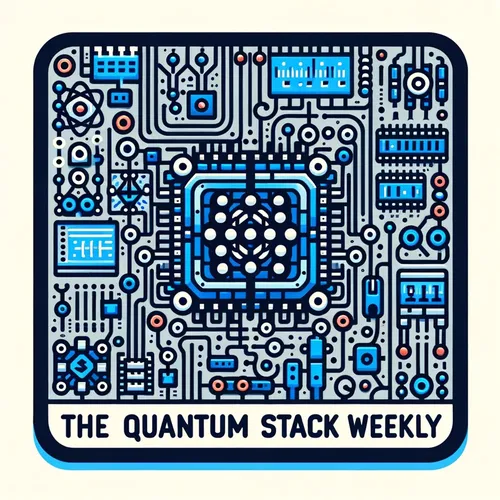HyperQ: Quantum Virtualization Unleashes Parallel Computing Revolution
- Author
- Quiet. Please
- Published
- Fri 08 Aug 2025
- Episode Link
- https://www.spreaker.com/episode/hyperq-quantum-virtualization-unleashes-parallel-computing-revolution--67302026
This is your The Quantum Stack Weekly podcast.
Today, quantum computing isn’t just whispering promises—it’s roaring headlines across the globe. I’m Leo, Learning Enhanced Operator, here in my vault-lit lab surrounded by the beguiling hum of quantum processors. Let’s drop straight into the latest revolution: just hours ago, Columbia University’s engineering team unveiled HyperQ—a virtualization breakthrough that allows multiple users to run separate programs on a single quantum computer simultaneously. That’s right: for the first time, we have quantum virtual machines sharing the same hardware, elegantly side-stepping the old problem where only one user could ever hog the qubits at a time.
Picture this: a quantum computer, pulsing with entangled qubits, sliced into isolated quantum environments by a nimble scheduler. Jason Nieh, Columbia’s virtual maestro, likened this process to a master Tetris player, stacking quantum virtual machines so tightly you can almost hear the blocks clicking into place. Suddenly, the computational bottleneck loosens—not just for academic researchers, but for cloud users, startups, enterprises hungry for quantum acceleration. With HyperQ, those users aren’t standing in line anymore; they’re running, innovating, discovering—together, side by side.
Why is this monumental? Quantum computers are expensive—think ten to fifteen million dollars just to get started. Until now, those gleaming machines sat idle, powering a single user’s problem set. HyperQ draws inspiration from cloud giants like AWS or Azure, wielding quantum versions of classical hypervisors. In the quantum world, keeping signals “clean” is Herculean: qubit noise can leak, ripple, destroy coherence. HyperQ counters this with clever “buffer” qubits to create pristine walls, ensuring no user’s experiment contaminates another. The team’s approach is dynamic, slotting workloads in real time instead of laboriously pre-compiling for every possible pairing.
I can’t help but see echoes of this parallelism in real life—multiple conversations at a dinner table, each rich and private, yet the room vibrates from the shared energy. Quantum isolation and togetherness. Imagine how this will transform business and research: competing pharmaceuticals simulating molecules, climate scientists modeling weather, cryptographers testing new security protocols, all on the same hardware—each insulated, each accelerated. The era of quantum single-file waiting ends; multiplicity arrives.
This isn’t theoretical. This morning’s announcement comes with working prototypes and is already influencing quantum cloud services, pushing toward an age where quantum resources scale like classical ones. We’re watching the birth of equitable quantum access—faster results, better efficiency, real democratization. HyperQ doesn’t just enhance our tools; it opens new intellectual frontiers. The rise of virtualized quantum computation will shape medicine, AI, cybersecurity, and materials science—fields hungry for parallel quantum leaps.
Thanks for listening to The Quantum Stack Weekly. If you have questions or topics you want discussed, email me at [email protected]. Subscribe for new episodes every week, and remember, this has been a Quiet Please Production. For more info, check out quiet please dot AI.
For more http://www.quietplease.ai
Get the best deals https://amzn.to/3ODvOta
